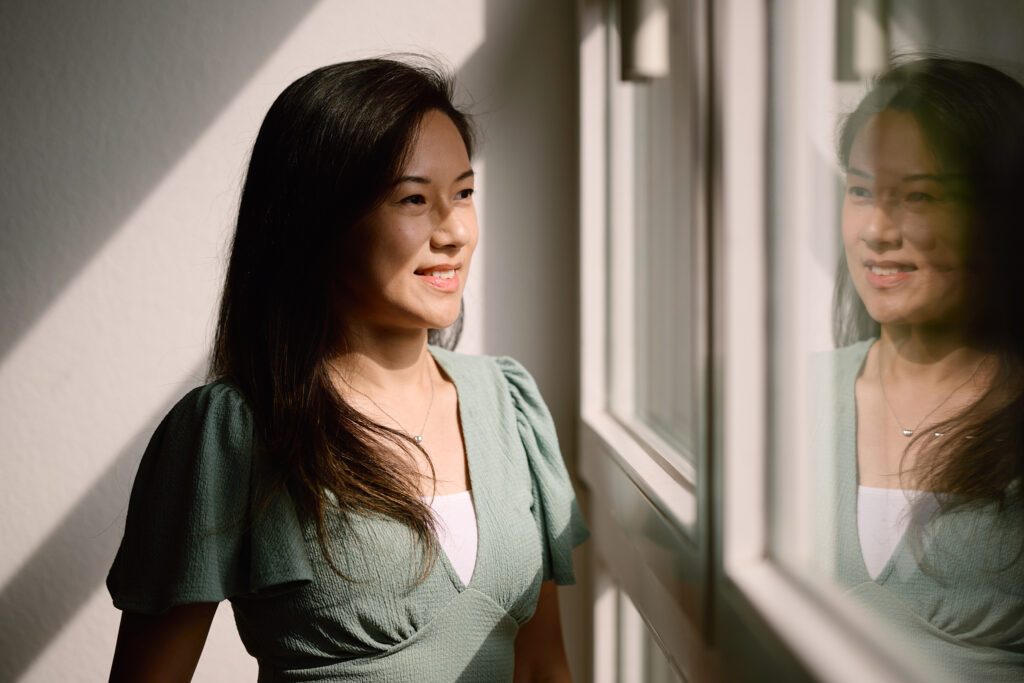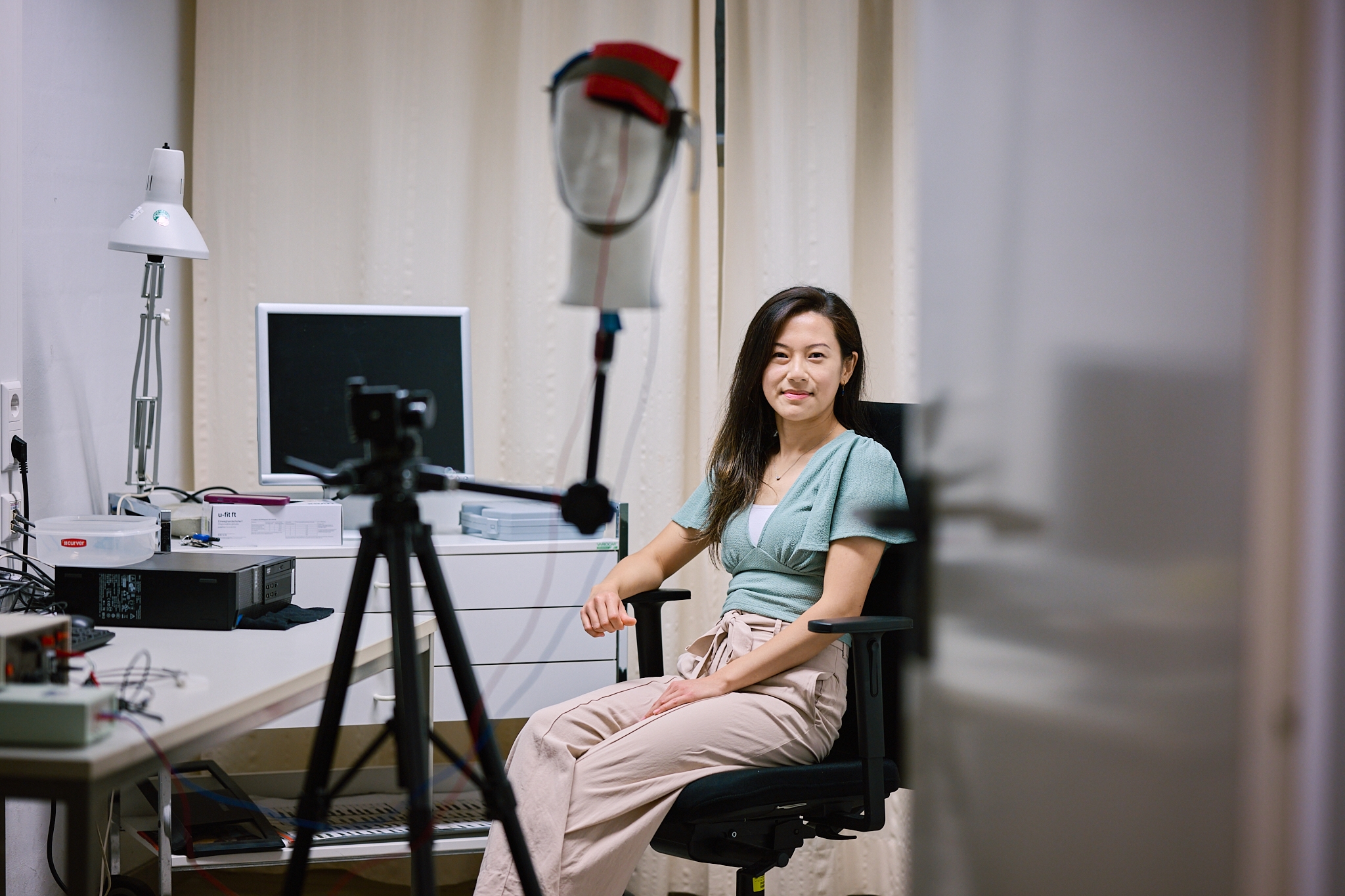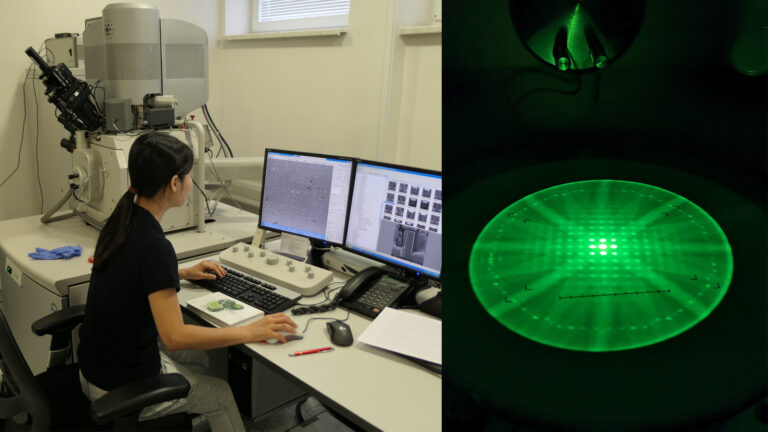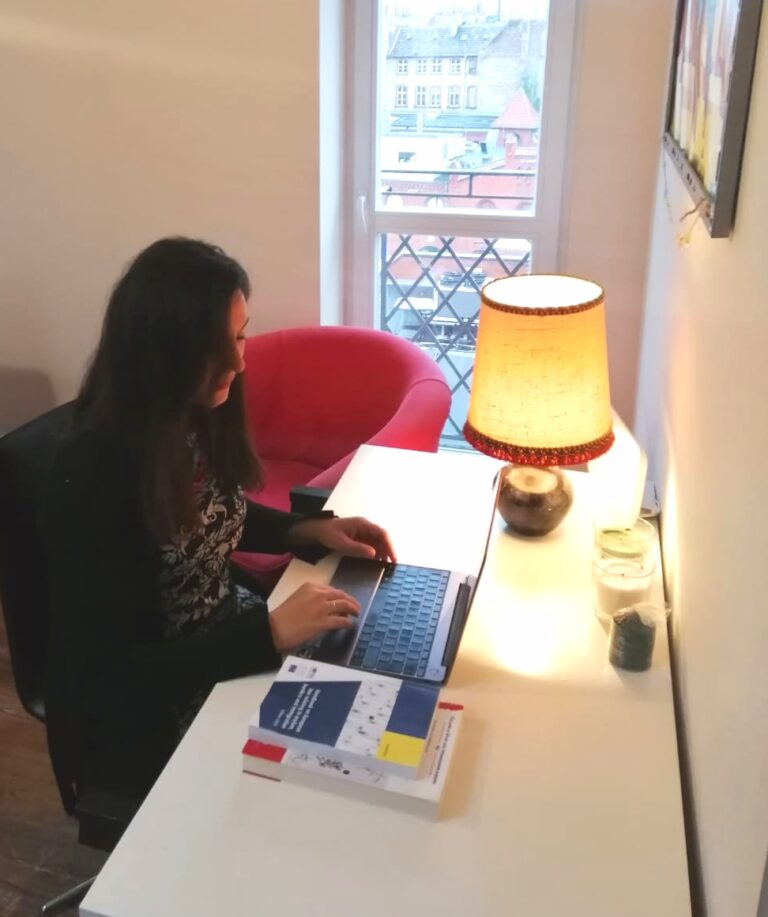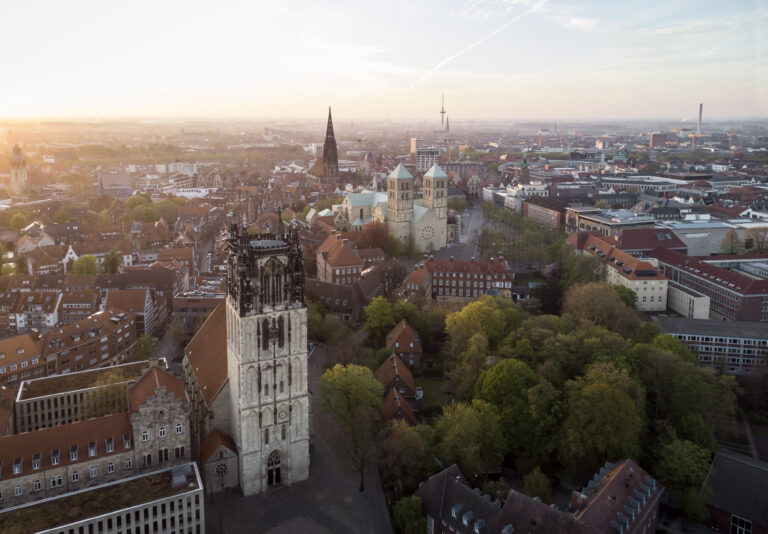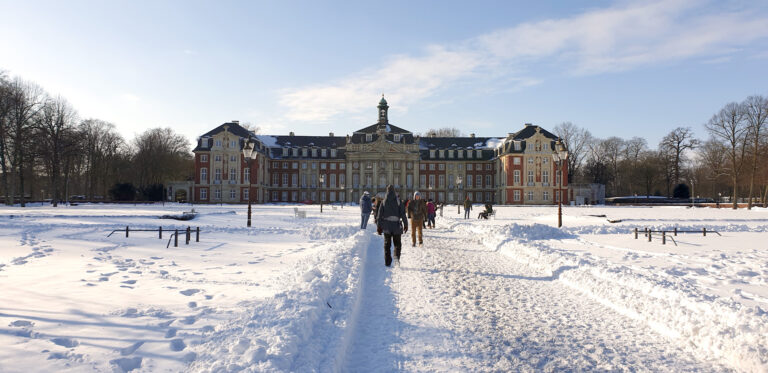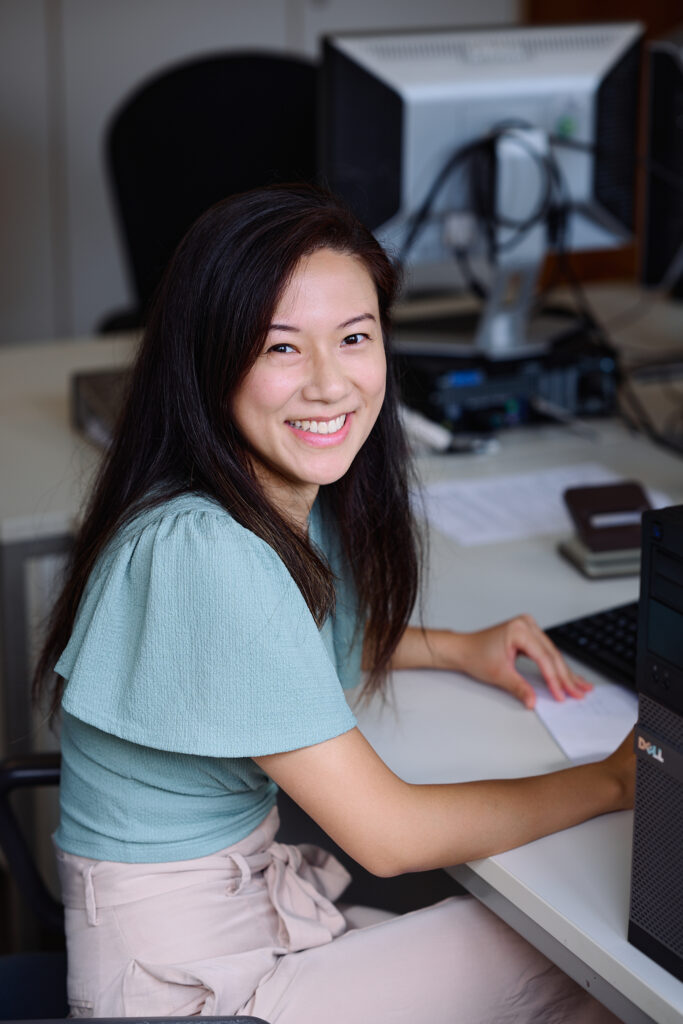
Revolutionizing the Treatment of Neurological Swallowing Disorders – An Interview with Speech Therapist Dr. Ivy Cheng
In the series “33 questions” we introduce, in no particular order, our WiRe Fellows who are currently working on a research project here at the University of Münster. Why 33? Well, if we think of the rush hour of life, it is kind of the age that lies in the middle. And we also like the number😉.
In today’s episode we are speaking with Dr. Ivy Cheng, a speech therapist specialized in neurorehabilitation of swallowing disorders, and passionate lover of animals and plants.
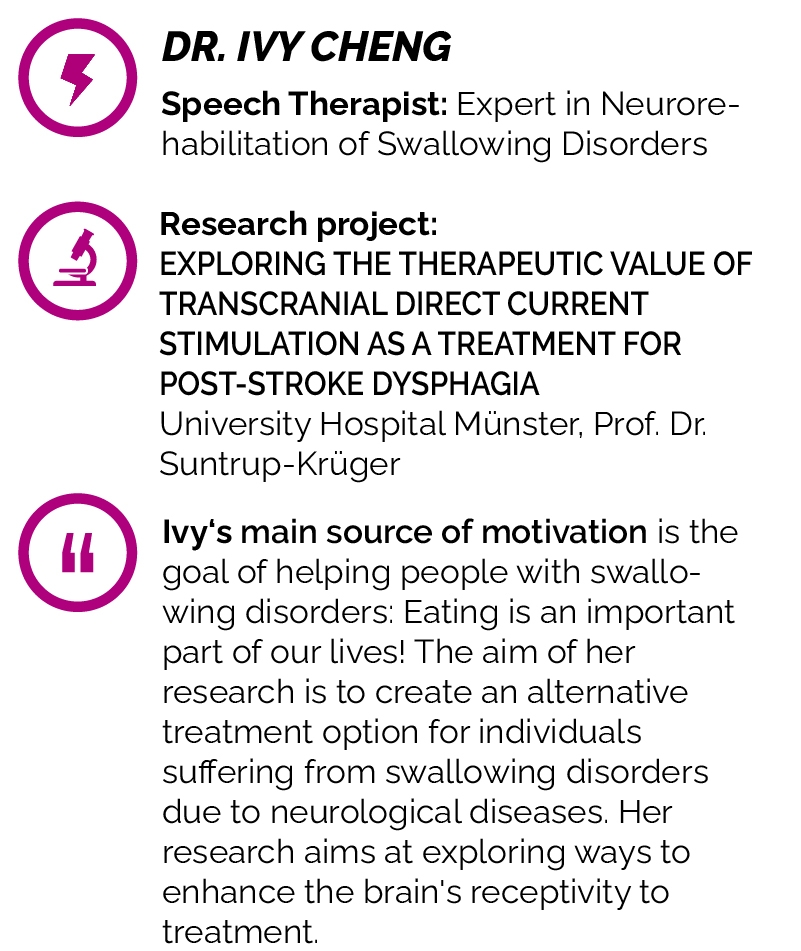
1. A good speech therapist needs … ?
A good speech therapist needs several qualities: empathy, the ability to communicate effectively with other healthcare professionals and patients, good knowledge and understanding of speech, language, communication and swallowing disorders, as well as the latest research and evidence-based practices, patience, creativity and flexibility to adapt to different patient conditions.
In addition to the aforementioned qualities, the most vital characteristic for a good speech therapist is humility. This involves recognizing one’s limitations and having a desire to continue learning and enhancing one’s expertise and abilities.
2. Describe your research topic in three words.
Rehabilitation through neurostimulation.
3. What direct or indirect relevance does your research have for society?
The focus of my research is to create an alternative treatment option for individuals suffering from swallowing disorders due to neurological diseases. My research aims at exploring ways to enhance the brain’s receptivity to treatment and maximize its potential for positive outcomes. The results of this study could have a significant impact, not only for the affected patients but also for the society as a whole. By reducing the long-term costs of patient care and allowing healthcare resources to be more efficiently allocated to those in need, this study could offer a valuable solution to a pressing medical issue.
4. Describe your daily work in three words.
Hypothesizing, implementing, and analyzing.
5. What does a typical (work) day look like for you?
My typical day starts with dedicating around two hours to working on or reviewing manuscripts for journals, followed by preparing for the day’s experiments. The experiment involves monitoring the brain responses of healthy volunteers using magnetoencephalography (MEG) while they swallow water, along with a session of neurostimulation. After the stimulation, the same procedure of monitoring brain responses is repeated, and finally, I enter any handwritten data into the database by creating a digital copy on my computer.
6. What keeps you motived in your work day in and day out?
The main source of my motivation is my goal of helping people with swallowing disorders: Eating is an important part of our lives and sharing a meal with loved ones can bring us joy. However, for those with neurological diseases, swallowing difficulties can have a negative impact on their mental and social well-being. That’s why I am motivated to help these patients improve their ability to swallow, so they can enjoy mealtimes again. I am also driven by the challenge of research and continuous learning in order to keep up with new research and technology in the field.
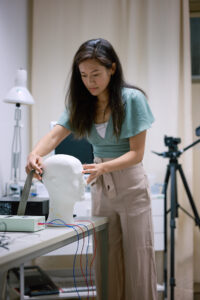
7. … and what motivated you to work in the field of neurorehabilitation of swallowing disorders in the first place?
After completing my PhD, I had the opportunity to learn about the neurophysiology of swallowing and neurostimulation treatments from Professor Shaheen Hamdy at the University of Manchester, UK, who is a pioneer in this field. This experience sparked my interest in the potential of neurostimulation as a way of helping people to recover from swallowing disorders. I’m grateful for the WiRe Fellowship, which allows me to pursue my passion for investigating the potential of neurostimulation in treating swallowing disorders. I’m excited to work alongside a renowned expert in this field, Univ.-Prof. Dr. med. Sonja Suntrup-Krüger, at the University of Münster and to continue my research journey.
8. If possible, which (historical) important scientist / researcher would you like to have dinner with? What would you ask?
Madame Marie Curie. I would like to discuss with her the advantages and obstacles of being a woman in science in her time, and how they compare with and contrast with the experiences of women in science today. Also, I would like to ask her for her insights on how to support and uplift female scientists today.
9. What is the biggest challenge for you when it comes to balancing family and career? How do you master this?
The biggest challenge for me is that research opportunities often take me abroad and away from my family for months or years. Thanks to modern technology, video calls make it easy to keep in touch with them.
10. What is the best experience you have had as a scientist / researcher?
I would say that the travels associated with work and the opportunity to live in other countries lead to my best experiences of being a scientist.
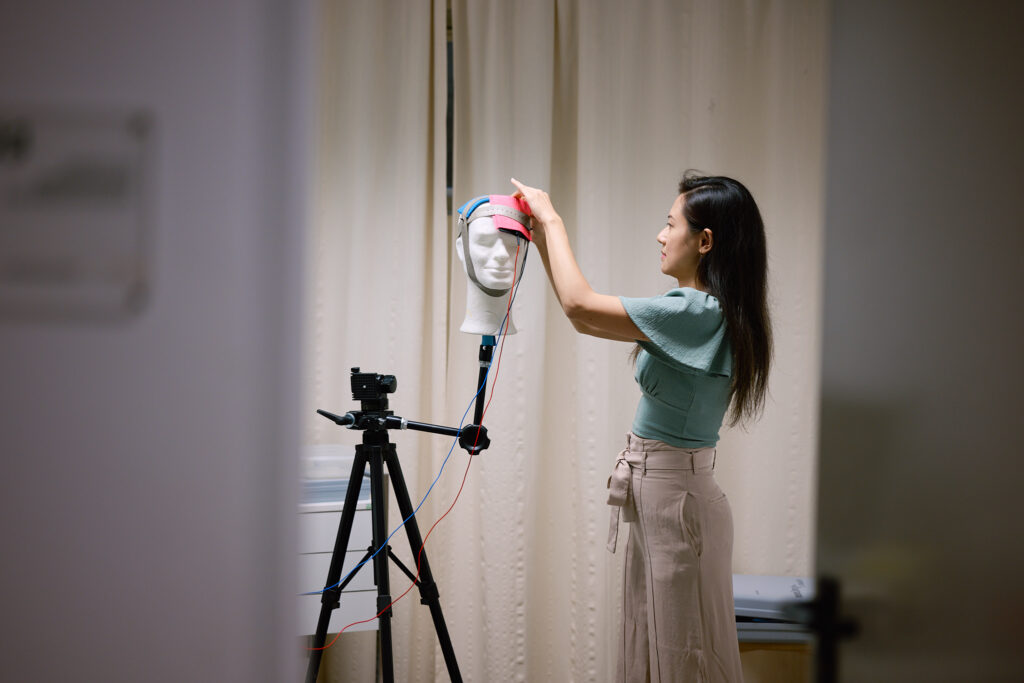
11. What was your biggest research disaster? What did you learn out of it?
I cannot single out a particular moment of research disaster in my experience. I think research is a journey of learning and adapting to the challenges that you face on a daily basis. Even the most well-planned experiment can face unexpected challenges or setbacks. The most important thing I have learned from these research setbacks is resilience. Failure can provide for an opportunity to evaluate your methods and approach and identify areas for improvement. By being resilient and open to feedback, you can develop your research skills and increase your chances of success in the future.
12. What do you consider the greatest achievement in the history of science / research / your field?
That would probably be the discovery of radium, which has been utilized for cancer treatment and imaging purposes. It has significantly contributed to advancements in the fields of medicine, physics, and chemistry.
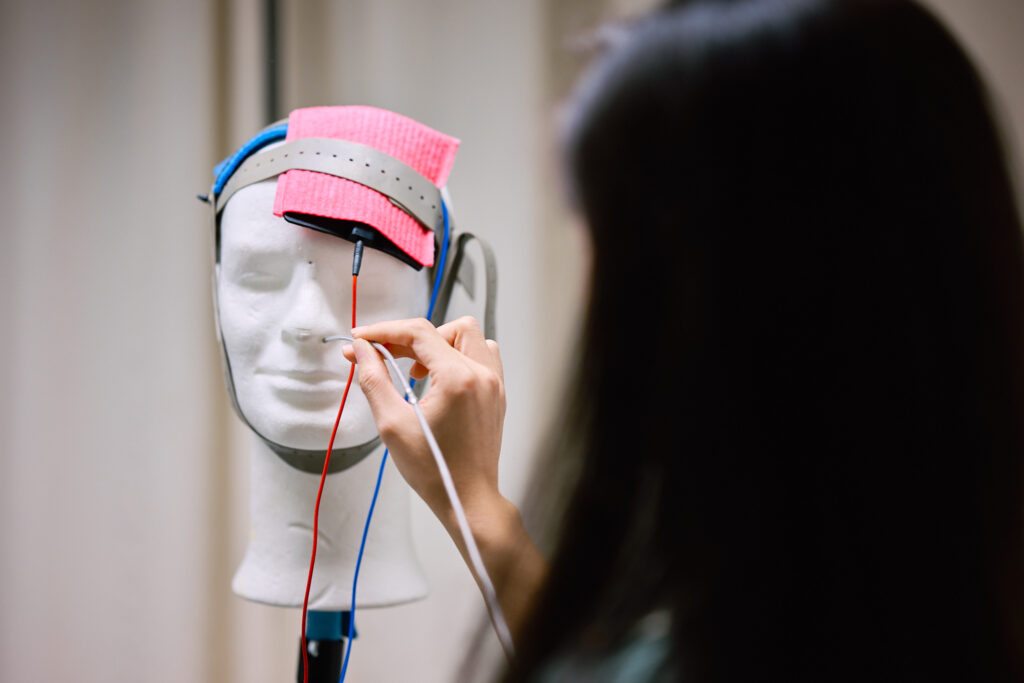
13. What do you like most about the “lifestyle” of a scientist / researcher? And what least of it?
I enjoy the autonomy and adaptability that the role of a researcher offers. As a researcher, I have the freedom to structure my day-to-day activities according to the progress of my research. In addition, the opportunity to travel and collaborate with other laboratories around the world provides a great deal of flexibility to explore new avenues of research. Furthermore, I appreciate the networking opportunities that being a researcher provides, where I can engage with other professionals to discuss new concepts and collaborate on new research ideas.
However, the challenges of limited, short-term, and often underpaid positions within academia are concerning. The lack of sustainability and stability can impede the development of long-term research projects. The pressure to secure a job after a few years can also be a significant source of stress, which can hinder progress and creativity.
14. What is the biggest difference between the academic system you have last done research in and the academic system as you experience it in Germany?
The main difference between the German and British academic system is that in Germany students can pursue their studies free of cost, whereas this is not the case in the United Kingdom. I believe that free tuition plays a vital role in motivating students to pursue higher education and research.
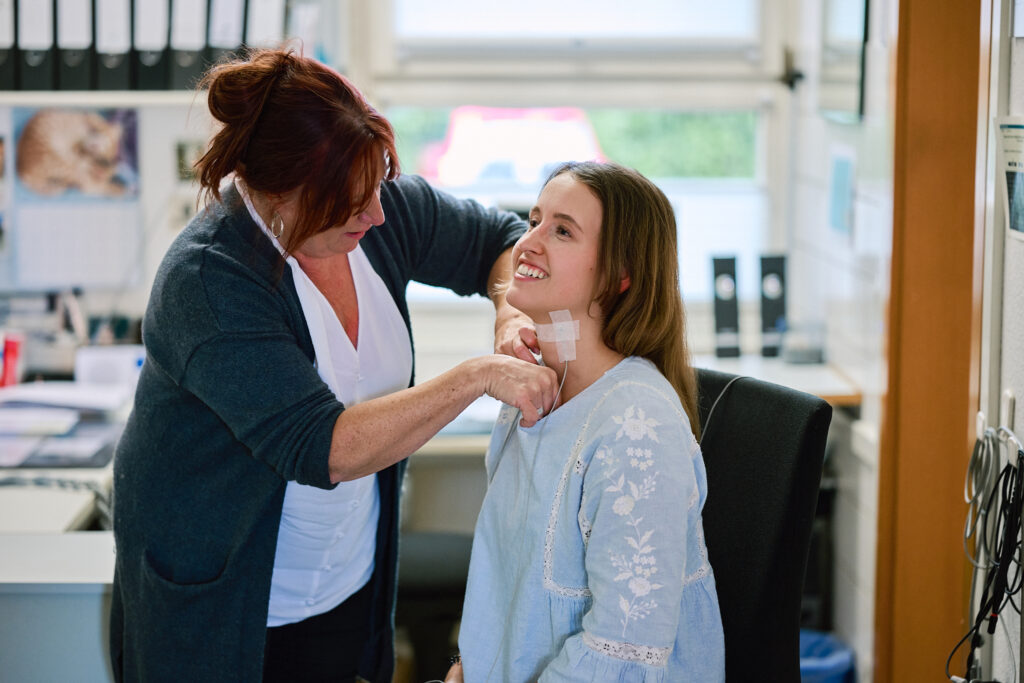
15. What is your favorite German word? Why?
Feierabendbier. I have to admit I don’t know enough German to pick my favorite word, but “feierabendbier” is my current favorite because it reminds me of the importance of work-life balance.
16. In terms of work-life balance: How do you keep your head clear when you are stressed?
When I am stressed, I take short breaks and go for a walk in nature. This allows me to clear my mind and return to my work with a fresh perspective.
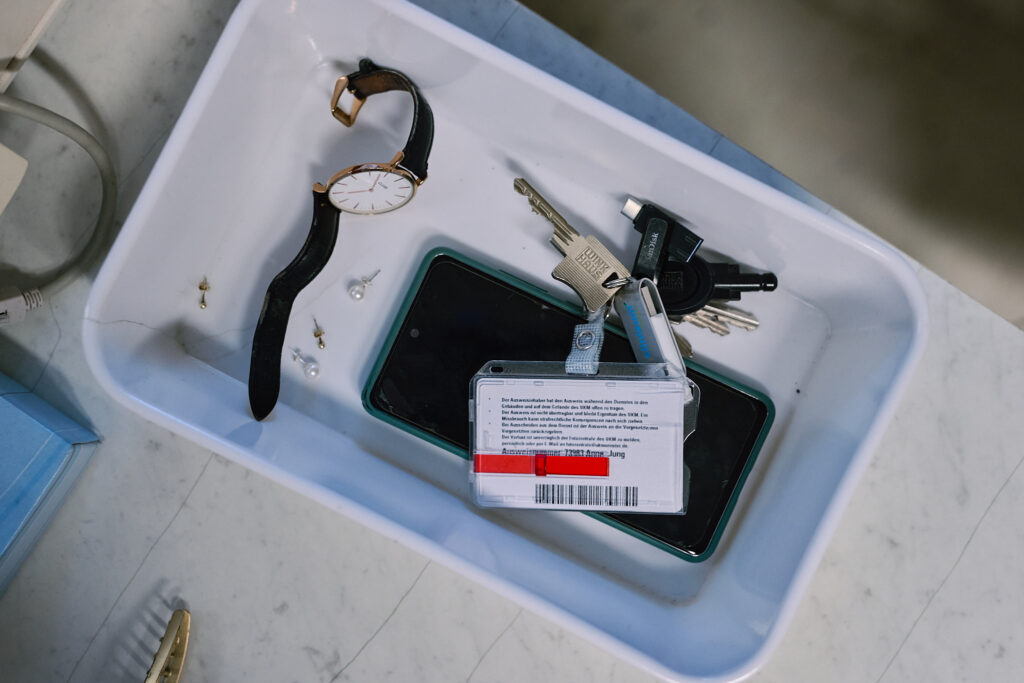
17. What are your favorite research disciplines other than your own?
Astrophysics, entomology and anthropology.
18. How did you imagine your future as a child? What profession did you want to pursue?
When I was a child, I wanted to become a teacher.
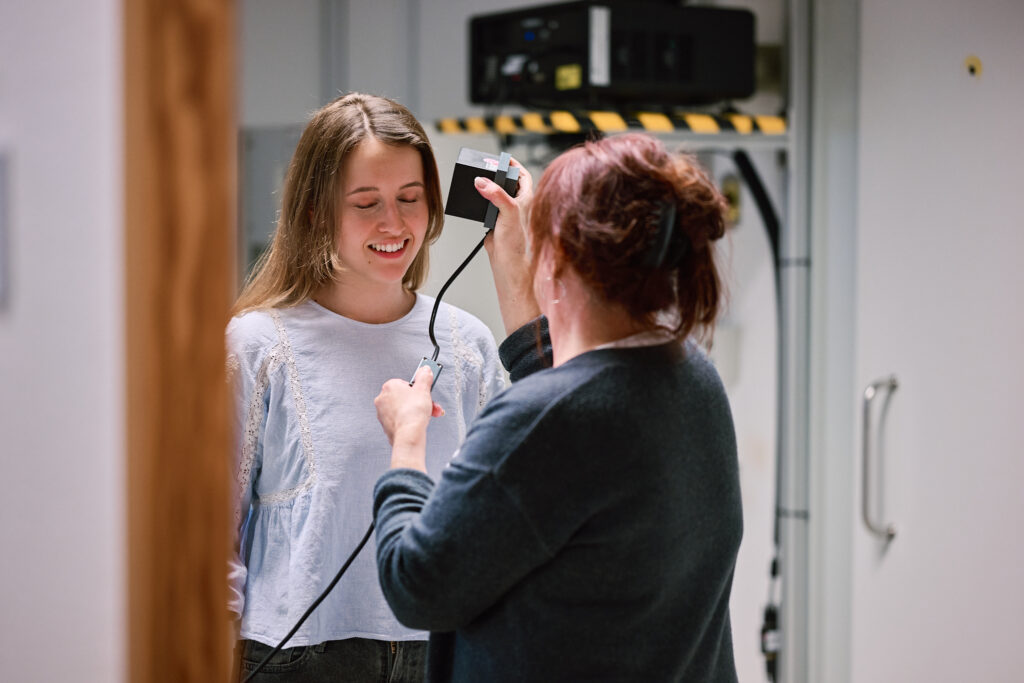
19. What or who inspired you to become a researcher?
My primary inspiration to become a researcher was my mother. She bought me the “I Wonder Why” collection for my 8th birthday which has inspired me to be curious about the world and scientific discoveries.
20. If you had a daughter, what would you advise her not to do?
Do not give up on your ideas because of what other people think.
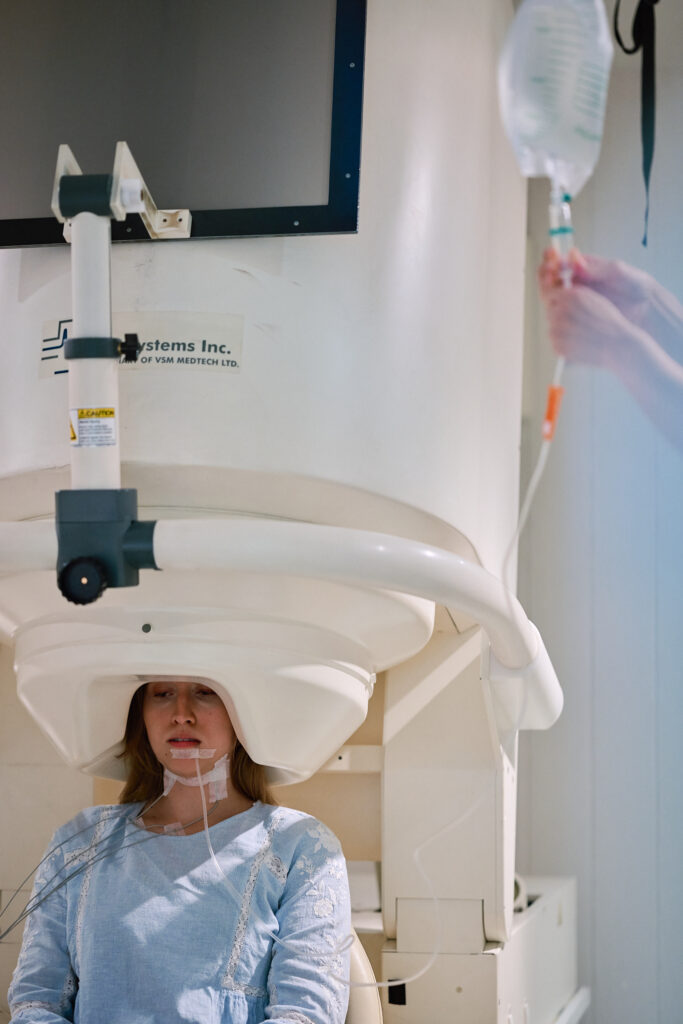
21. If you were the research minister of Germany, what would you do to improve the situation of women in science?
I would focus on creating policies that promote gender diversity and equality in science. For example, I would provide funding and resources for research on gender diversity in science to better understand and identify the challenges faced by women and minorities. I would also encourage academic institutions to adopt policies that promote diversity and gender equality in research and academia, such as providing equal opportunities for hiring, promotion, and funding. To educate the public, I would develop awareness- raising campaigns and educational programs to encourage girls and young women to pursue science and STEM-related careers.
22. How did you imagine the life of a scientist / researcher when you were a high school student? Is it actually different? In what way?
I imagined scientists and researchers always working in a laboratory with test tubes and petri dishes.
There are similarities and differences. It is similar in the sense that I work primarily in a laboratory environment, but instead of working with test tubes, my research allows me to work and interact with people who participate in my study.
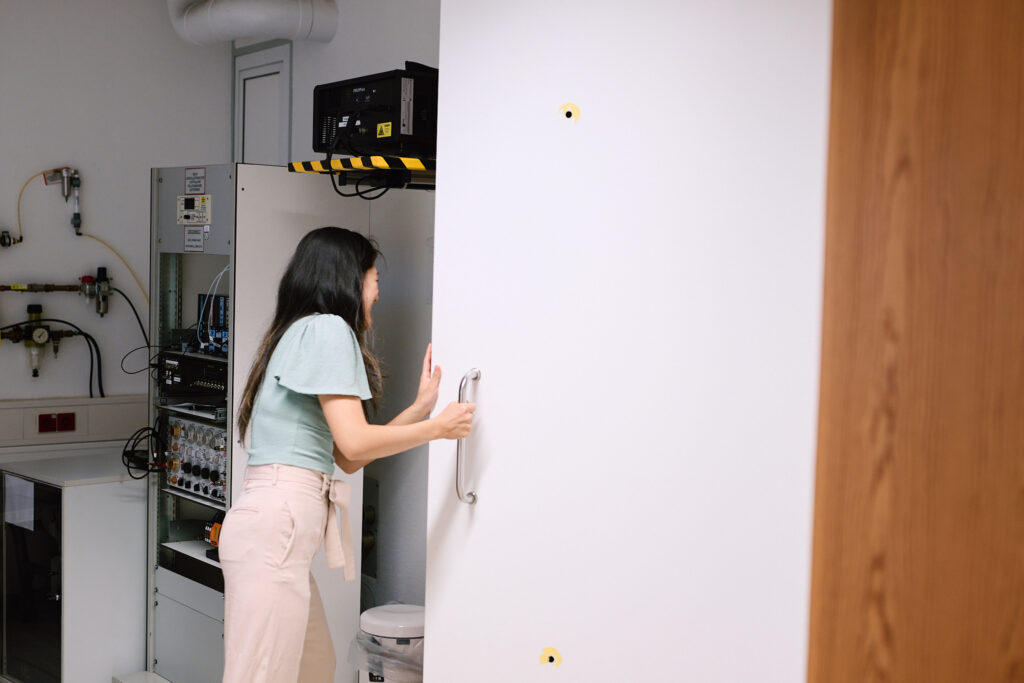
23. How would you explain your research area and topic to a child?
I study how people swallow food and drink without choking. When people get older, or when their brains get sick, it becomes tough for them to swallow safely. Sometimes, they might cough or feel like food is stuck in their throat. As a speech therapist, I teach them how to swallow safely, but not everyone responds well to these treatments. So, I want to find a new way to help them. My research looks at how we can use electricity to help their brains and throats work better and make swallowing safe and easy again.
24. If time and money were no object: Which research project would you like to do?
A multi-centre, randomized clinical trial to be conducted in several countries to investigate the effectiveness of neurostimulation as a treatment for post-stroke swallowing disorders. This large-scale clinical trial will provide valuable evidence of the therapeutic value of neurostimulation.
25. If you could travel in time: in which epoch and at which discovery or event would you have liked to have been there?
To be honest, I cannot identify a specific discovery or event that I would like to witness. I am continually amazed and appreciative of all discoveries as they serve as an inspiration to push the limits of scientific research.
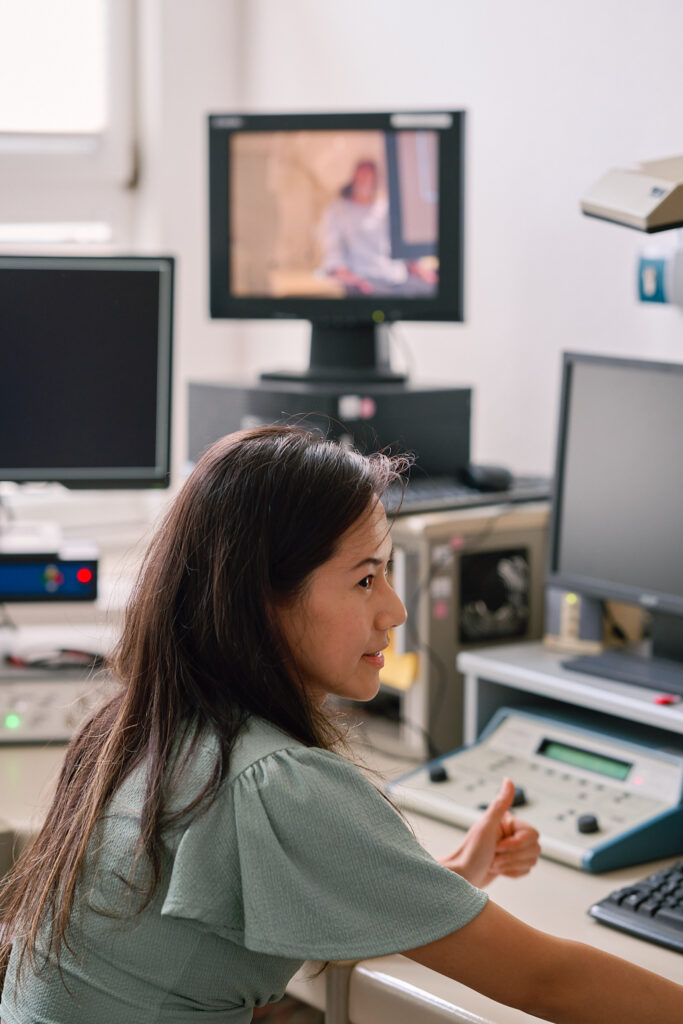
26. Which experience in the world of science disappointed you most?
I am disappointed by the situation where scientists do not receive recognition and compensation that reflects their contributions and expertise. Additionally, when funding sources are scarce, it’s possible that innovative and promising research projects may not receive the necessary financial support, leading to missed opportunities for significant discoveries.
27. How often do you as a friend / partner / mother / daughter feel guilty when you have to meet a deadline – again?
I don’t usually feel guilty because I prioritize spending time with family and friends. Having good time management skills is key to getting things done while enjoying quality time with loved ones.
28. Which of your traits bother you the most in your daily work? And which of your traits help you the most in your daily work?
At times, I tend to get lost in my thoughts quite easily. For instance, while working on a paper and coming across some of the latest research in the field, I may start thinking about ways to further build on the findings or how to collaborate with the authors, rather than focusing on the paper at hand.
By contrast, I am conscientious and persistent. These traits help me to get the job done well and to achieve my goals.
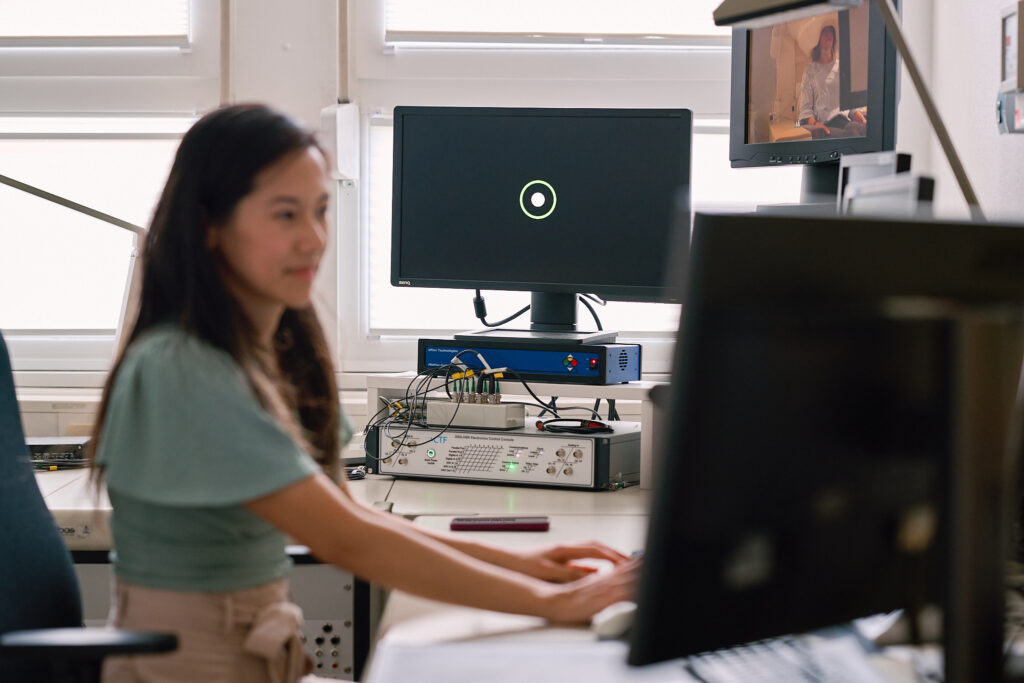
29. What worries you most about the world?
The growing dependence on technology has resulted in reduced human interaction at times.
30. And what makes you most happy about the world?
The diversity of cultures, languages, and people around the world always fascinate me. The world is full of unique experiences, perspectives, and traditions that make it a vibrant and interesting place to explore and learn about. Additionally, seeing acts of kindness and compassion also makes me happy.
31. How did you survive your PhD time?
Persistence and a continuous reminder of my goal. When facing multiple deadlines, I find it helpful to concentrate on one day at a time, prioritizing tasks and working steadily towards completing them. This approach enables me to overcome any challenges while staying committed to my ultimate goal of making a positive difference for patients with swallowing disorders.
32. What advice and tips do you have for future PhD students?
It is important to understand your goal of pursuing a PhD. Having a supportive PhD supervisor and mentor can make a huge difference to your PhD life. Also, sharing your experience and struggles with other PhD students can be very helpful.
33. And last but not least: What is your favorite place in Münster?
